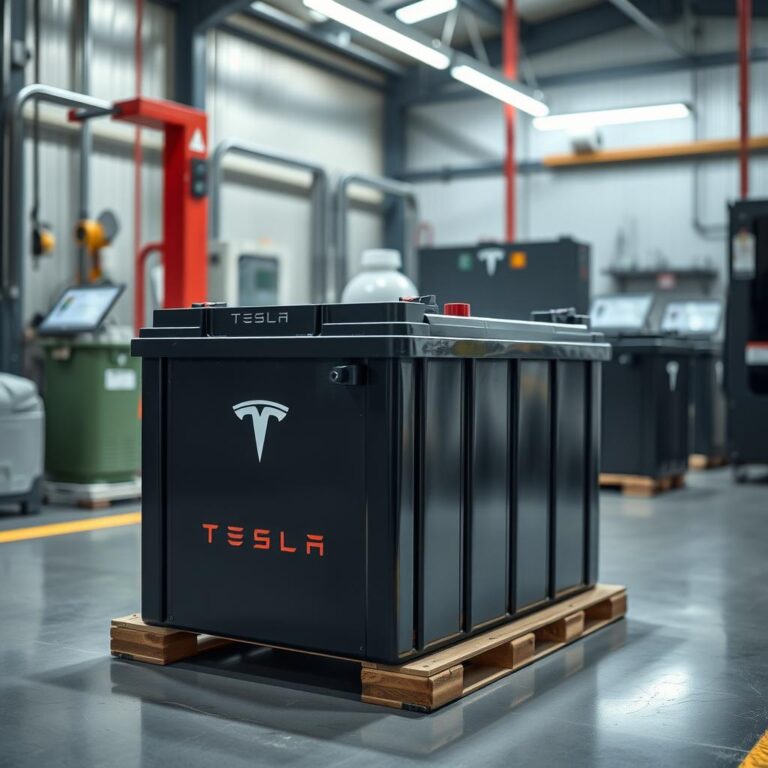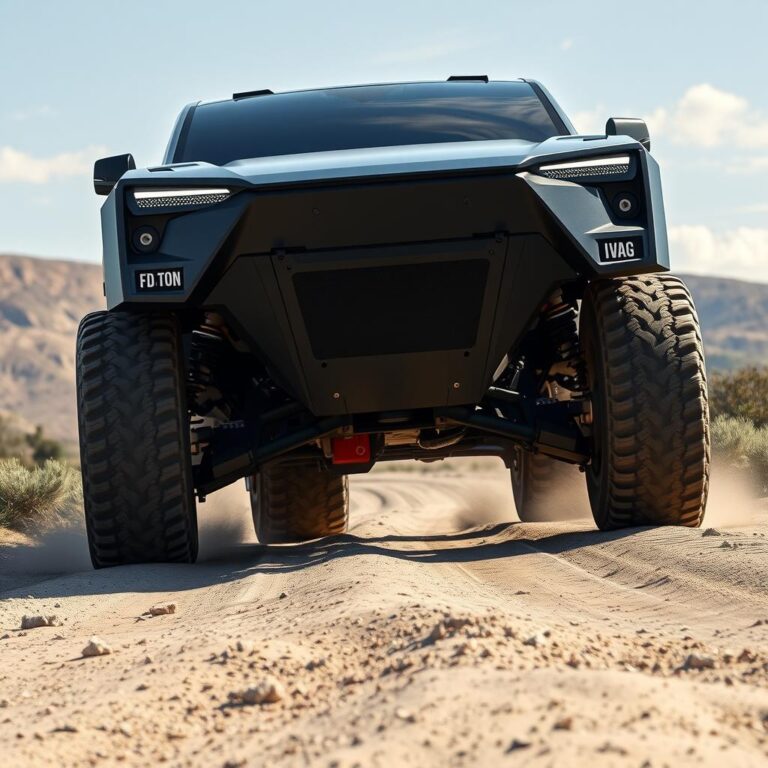Are Tesla Cars Hybrid?
Are Tesla Cars Hybrid? Understanding the Differences
As electric vehicles (EVs) continue to grow in popularity, many people are curious about the differences between fully electric cars and hybrid vehicles. When it comes to Tesla, a common question is: “Are Tesla cars hybrid?” In this article, we’ll dive into what makes a car hybrid, explain why Tesla cars are not hybrid, and explore the benefits of choosing a fully electric vehicle like a Tesla.
What is a Hybrid Car?
Before answering the question of whether Tesla cars are hybrid, it’s important to first understand what a hybrid car is. A hybrid vehicle is one that combines both an internal combustion engine (ICE) and an electric motor. The idea behind hybrid cars is to use the electric motor for lower speeds and short distances, while the gas engine kicks in for higher speeds and longer distances, improving fuel efficiency and reducing emissions compared to traditional gasoline-powered vehicles.
Hybrid vehicles come in various forms, including:
- Full Hybrid (HEV): These cars can run on the electric motor alone, the gasoline engine alone, or a combination of both. Examples include the Toyota Prius.
- Plug-In Hybrid (PHEV): These vehicles have a larger battery that can be charged via an electrical outlet, allowing for longer electric-only driving ranges before the gas engine kicks in. Examples include the Chevrolet Volt and the Toyota Prius Prime.
- Micro Hybrid: These cars primarily rely on a gasoline engine but feature some electric assistance, such as a start-stop system to save fuel when idling.
Hybrid vehicles are a bridge between traditional gasoline-powered cars and fully electric vehicles. However, Tesla cars do not fall into the hybrid category, as they are fully electric and do not use any gasoline or internal combustion engines.
Are Tesla Cars Hybrid?
The simple answer is no, Tesla cars are not hybrid vehicles. Tesla cars are 100% electric, meaning they rely entirely on electricity stored in batteries to power the vehicle. Unlike hybrid vehicles, Tesla cars do not have a gas engine. Instead, they are powered by electric motors that draw power from high-capacity lithium-ion battery packs. Tesla’s commitment to producing fully electric vehicles has played a significant role in advancing the electric vehicle market and reducing carbon emissions.
What Makes Tesla Different from Hybrid Cars?
While hybrid cars combine an electric motor with a gasoline engine, Tesla vehicles operate differently. Here are the main differences between Tesla’s fully electric cars and hybrid cars:
1. Power Source
As mentioned earlier, hybrid cars use both an electric motor and a gasoline engine, while Tesla cars rely solely on electricity to power the electric motor. Tesla’s vehicles do not require gas, so they produce zero emissions while driving. This makes them more environmentally friendly compared to hybrid vehicles, which still burn fuel in their gasoline engines.
2. Charging
Hybrid vehicles can recharge their battery either through regenerative braking or by using the gasoline engine. Plug-in hybrids (PHEVs) can also be plugged into an electrical outlet to recharge the battery. Tesla cars, on the other hand, must be charged via an electric outlet, either at home using a wall connector or at a public Tesla Supercharger station. Charging an electric vehicle takes longer than refueling a hybrid or gas-powered car, but Tesla’s extensive Supercharger network helps reduce charging time significantly.
3. Emissions
Hybrid cars produce some level of emissions, as they rely on a gasoline engine to power the vehicle when the electric battery is depleted. Tesla cars, being fully electric, produce no emissions while driving, making them a cleaner option for the environment. Tesla’s commitment to sustainability extends beyond just the vehicles, with the company also investing in renewable energy solutions like solar panels and energy storage systems.
Why Choose a Tesla Over a Hybrid Vehicle?
If you’re deciding between a Tesla and a hybrid vehicle, there are several reasons why a fully electric Tesla might be the better choice. Let’s explore some of the benefits of choosing an all-electric vehicle over a hybrid:
1. Environmentally Friendly
One of the main reasons to choose a Tesla over a hybrid is the environmental impact. Since Tesla vehicles don’t rely on gasoline or produce emissions while driving, they are much better for the environment than hybrid cars. If you’re looking to reduce your carbon footprint and contribute to a cleaner future, a fully electric car like a Tesla is a great choice.
2. Lower Operating Costs
Electric vehicles like Tesla tend to have lower operating costs than hybrid vehicles. The cost of electricity is generally lower than gasoline, and since Tesla doesn’t have a traditional engine with moving parts, there’s less maintenance required. Tesla owners don’t need to worry about oil changes, exhaust systems, or fuel filters. Over the life of the car, these savings can add up, making a Tesla more cost-effective than a hybrid in the long term.
3. Better Performance
Tesla vehicles are known for their incredible performance. With instant torque and rapid acceleration, Teslas outperform many hybrid and traditional gasoline vehicles. The electric motors in Tesla cars deliver smooth, powerful acceleration without the need for a gear-shifting transmission. Tesla’s electric powertrain also provides a quieter, more comfortable driving experience compared to hybrid vehicles, which rely on both the electric motor and the gasoline engine.
4. Reduced Dependence on Fossil Fuels
While hybrid vehicles still rely on gasoline to some extent, Tesla’s electric vehicles are completely independent of fossil fuels. By driving a Tesla, you reduce your reliance on gasoline and contribute to reducing the overall demand for oil. Additionally, Tesla’s vehicles can be charged using renewable energy sources like solar power, making them even more sustainable.
Are Tesla Cars Good for the Environment Compared to Hybrid Cars?
Yes, Tesla cars are better for the environment compared to hybrid vehicles. Because Tesla’s cars are fully electric, they produce no tailpipe emissions. This means that while driving a Tesla, you won’t contribute to air pollution or greenhouse gas emissions, unlike hybrid vehicles that still rely on gasoline engines for power. Even though hybrid vehicles are more environmentally friendly than traditional gasoline-powered cars, they are not as clean as fully electric vehicles like Tesla.
Furthermore, Tesla’s commitment to sustainability extends beyond its vehicles. The company produces renewable energy solutions such as solar panels and energy storage systems, which can be used to charge your Tesla using clean energy. By powering your Tesla with solar energy, you can further reduce your carbon footprint and make a positive impact on the environment.
Conclusion: Are Tesla Cars Hybrid?
The answer is no—Tesla cars are not hybrid vehicles. Unlike hybrid cars that combine a gasoline engine and an electric motor, Tesla cars are fully electric and rely solely on electricity to power the vehicle. While hybrid cars have their own benefits, Tesla’s commitment to sustainability, zero emissions, and advanced electric powertrains make it a great choice for anyone looking to drive a clean, high-performance vehicle. If you’re considering an electric vehicle, Tesla offers one of the best options in terms of quality, performance, and environmental impact.
So, if you were wondering, “Are Tesla cars hybrid?” now you know—Tesla cars are fully electric and offer a range of benefits that make them a great choice for anyone looking to embrace the future of driving.

How Does Tesla’s Technology Compare to Hybrid Vehicles?
One of the main reasons Tesla cars stand out in the automotive world is their advanced technology. While hybrid vehicles have made strides in incorporating some modern technology, Tesla goes above and beyond in terms of performance, user experience, and innovation. Let’s explore how Tesla’s tech compares to that of hybrid vehicles:
Autopilot and Full Self-Driving (FSD)
One of the standout features of Tesla vehicles is their Autopilot and Full Self-Driving (FSD) capabilities. Tesla’s Autopilot system allows the car to steer, accelerate, and brake automatically in certain driving conditions. FSD, which is an optional upgrade, includes additional features such as automatic lane changes, parking assistance, and the ability to navigate on highways and city streets with minimal input from the driver.
While hybrid vehicles often offer basic driver assistance features such as lane-keeping assistance and adaptive cruise control, none of them currently offer the same level of autonomy that Tesla’s Autopilot and FSD systems provide. Tesla’s continuous updates to its software mean that the car’s capabilities are constantly improving, making Tesla cars far more advanced in terms of technology than most hybrid vehicles on the market today.
Infotainment System
Tesla’s infotainment system is another area where the company excels. Tesla vehicles feature large touchscreens that control nearly every aspect of the car, including navigation, media, climate control, and more. This intuitive, user-friendly system is powered by advanced software that receives regular over-the-air updates, which means your Tesla is always improving over time without having to visit a service center.
Most hybrid vehicles have traditional infotainment systems that are often less intuitive and require more physical buttons and controls. While some hybrid brands have begun to implement touchscreen controls and advanced connectivity, Tesla’s infotainment system is still one of the most advanced in the automotive industry, making it a key differentiator when comparing Tesla to hybrid vehicles.
Over-the-Air Software Updates
One of Tesla’s biggest advantages is its ability to perform over-the-air software updates. These updates can add new features, enhance vehicle performance, and even improve safety systems—all without requiring you to visit a service center. Tesla’s ability to update its cars remotely means that owners can enjoy the latest software enhancements without the hassle of traditional car updates.
Most hybrid vehicles do not offer the same level of over-the-air software updates. While some automakers have begun to implement remote updates for things like infotainment systems and navigation, the capabilities are not as widespread or comprehensive as Tesla’s system. Tesla’s regular software updates contribute to a more seamless and modern ownership experience compared to most hybrid vehicles.
Battery Range: Tesla vs. Hybrid Vehicles
Another area where Tesla outshines hybrid vehicles is battery range. Hybrid cars rely on both gasoline and electricity to power the vehicle, which can give them the advantage of being able to travel long distances without worrying about charging. However, the electric-only range on hybrids is often limited, with many vehicles offering just 20 to 50 miles of electric driving before the gasoline engine kicks in.
On the other hand, Tesla vehicles are fully electric, meaning they have significantly higher electric-only ranges. The range of Tesla cars varies depending on the model, but many Tesla models can travel over 300 miles on a single charge. For example, the Tesla Model S Long Range offers an impressive range of up to 405 miles, and the Model 3 Long Range provides up to 358 miles on a single charge.
While hybrid vehicles offer the convenience of a gas engine for longer trips, Tesla’s superior range makes it a more practical option for daily driving without the need for constant refueling. Additionally, Tesla’s extensive Supercharger network ensures that long road trips are still convenient, with quick charging stations available across the country.
Cost of Ownership: Tesla vs. Hybrid Vehicles
When considering whether to buy a Tesla or a hybrid vehicle, the cost of ownership is an important factor. While the initial purchase price of a Tesla can be higher than that of a hybrid, there are several factors that can make a Tesla more cost-effective in the long run.
Fuel Savings
One of the biggest advantages of driving a Tesla is the savings on fuel. Charging an electric vehicle is far cheaper than filling up a gas-powered car. According to the U.S. Department of Energy, the cost of charging an electric vehicle is approximately half the cost of fueling a gasoline-powered car on a per-mile basis.
For hybrid vehicles, while they offer better fuel efficiency than traditional gas-powered cars, they still require gasoline to run, meaning you’ll still be spending money at the pump. Over time, the savings on fuel with a fully electric vehicle like a Tesla can be significant, especially for drivers who use their car for daily commutes or long trips.
Maintenance Costs
Another advantage of owning a Tesla is the lower maintenance costs. Since Tesla vehicles don’t have a traditional internal combustion engine, they require less maintenance than hybrid or gas-powered cars. Tesla owners don’t have to worry about things like oil changes, timing belts, or exhaust systems. Additionally, because Teslas have fewer moving parts, the likelihood of mechanical failures is reduced compared to hybrid vehicles, which still have traditional engine components.
Hybrid cars, while more fuel-efficient than traditional gas-powered cars, still require more maintenance than electric vehicles. The gasoline engine in hybrid cars needs regular maintenance, such as oil changes and exhaust system repairs, which can add to the overall cost of ownership.
Is Tesla a Good Choice for Eco-Conscious Drivers Compared to Hybrid Cars?
If you’re an eco-conscious driver looking to reduce your carbon footprint, a Tesla is likely a better choice than a hybrid vehicle. While hybrid vehicles are certainly more eco-friendly than traditional gas-powered cars, they still rely on gasoline engines and produce emissions when running on fuel. In contrast, Tesla cars produce zero tailpipe emissions, making them a far more environmentally friendly option.
Additionally, Tesla is committed to sustainability beyond just its cars. The company produces renewable energy solutions like solar panels and energy storage systems, which can be used to power your Tesla with clean, renewable energy. By choosing a Tesla, you are not only reducing your carbon footprint but also supporting a company that is focused on creating a more sustainable future.
Conclusion: Are Tesla Cars Hybrid?
The answer is no—Tesla cars are not hybrid vehicles. Tesla is fully committed to electric vehicles and offers a lineup of cars that are 100% electric. Unlike hybrid vehicles, which use both an electric motor and a gasoline engine, Tesla cars rely solely on electricity, producing zero emissions and offering significant advantages in terms of performance, efficiency, and sustainability.
If you’re considering an electric vehicle, Tesla offers one of the best options in terms of quality, performance, and environmental impact. With their impressive range, advanced technology, and commitment to sustainability, Tesla cars are a great choice for anyone looking to make the switch to electric driving. So, if you’re wondering, “Are Tesla cars hybrid?” now you know—they are fully electric and offer a range of benefits that make them a great choice for eco-conscious and performance-driven drivers alike.



